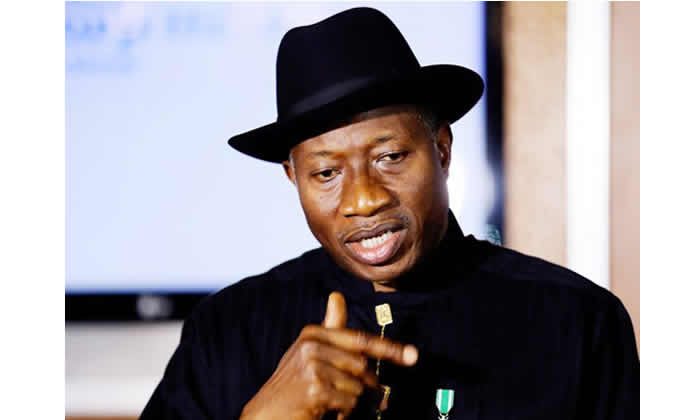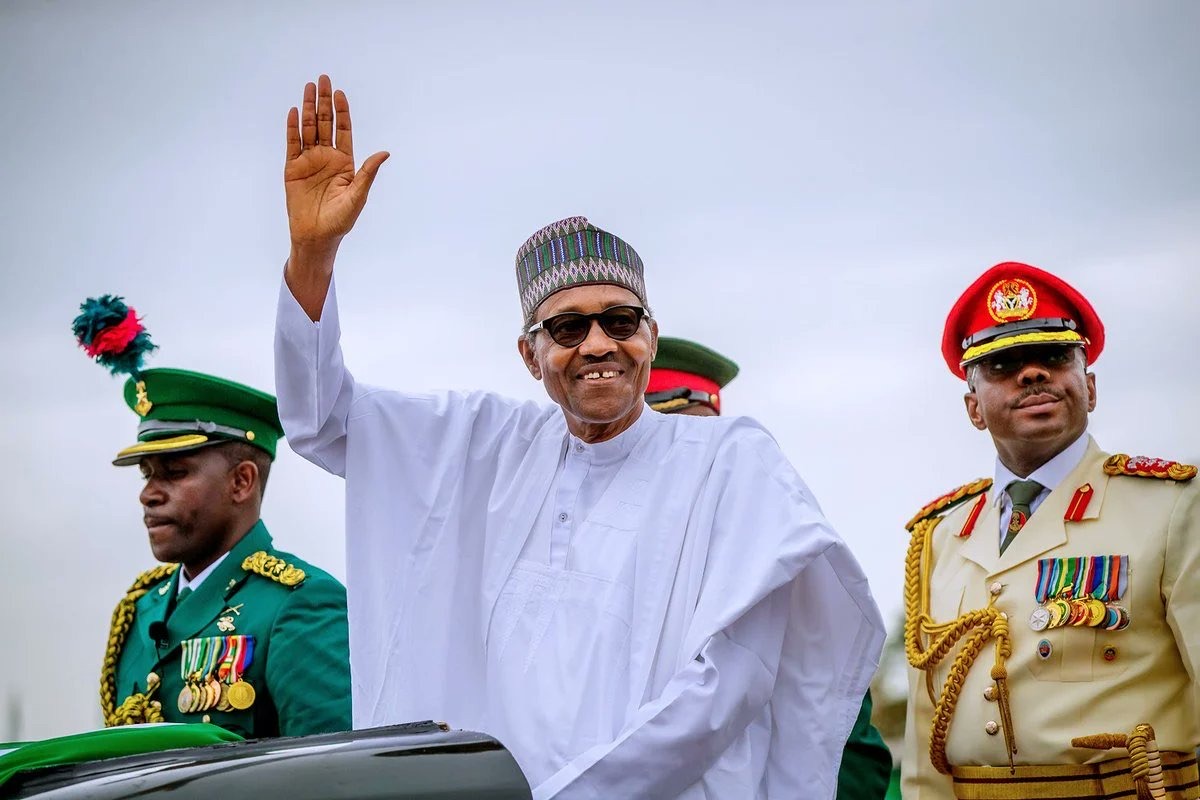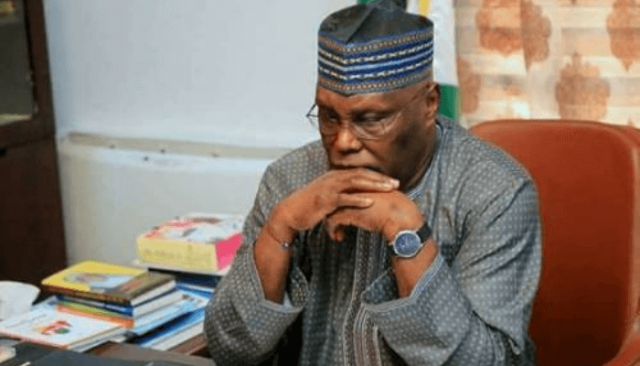Buhari govt went after my allies after 2015 election, Jonathan alleges

Former President Goodluck Jonathan, on Thursday, said shortly after his tenure ended in 2015, the succeeding administration — led by President Muhammadu Buhari — targeted several key officers in his government.
Jonathan remarked in Abuja, during the public presentation of a memoir titled “OPL 245: Inside Story of the $1.3bn Nigerian Oil Block,” authored by former Attorney-General of the Federation, Bello Adoke.
He was represented at the event by a former Senate President, Pius Anyim.
The OPL-245 case, also known as the Malabu Oil deal scandal, centres on the acquisition of Oil Prospecting Licence 245 — an oil block in Nigeria — by Shell and Eni in 2011 for $1.3bn.
The controversy stems from allegations that a significant portion of the payment, specifically $1.1bn, was channelled through intermediaries as bribes to Nigerian officials and politicians.
OPL 245 was initially awarded to Malabu Oil and Gas in 1998 by the Gen Sani Abacha administration.
However, the block became the subject of global corruption investigations, criminal prosecutions, and civil lawsuits after Malabu sold its entire stake to Shell and Eni in 2011.
Adoke, who was initially accused of wrongdoing by the Buhari administration, was eventually discharged and acquitted both in Nigeria and abroad.
In his address, Jonathan recalled how Adoke was hunted globally over the OPL-245 matter.
Speaking further, he said Adoke’s memoir upholds the truth.
“Shortly after my tenure ended in 2015, the succeeding government launched what many saw as a manhunt against key officers of my administration.
“The author of this memoir, Mr Bello Adoke, was the Attorney-General of the Federation at that time. He was hunted across the globe,” Jonathan said.
He continued: “But today, he is alive, he is healthy, and he is here to tell his story. Let me, therefore, use this occasion to congratulate Mr Bello Adoke, my friend and brother, for his doggedness, and to say that I am pleased to join you in celebrating this victory. I urge all of us to remain conscious of the fact that power belongs to God.”
Jonathan added that the best anyone entrusted with public office can do is commit to the assignment and use the opportunity to uphold truth, justice, and fairness.
“I must state, as always, that it is widely acknowledged among all civilisations that any society or organisation that does not promote justice and fairness will neither have peace nor make progress,” he said.
He further noted that the essence of Adoke documenting his memoir was not only to set the record straight but to contribute to the cause of truth and justice, which he described as the foremost pillars of nation-building.
Adoke, at the event, said he had forgiven all individuals involved in the legal and political controversies surrounding his role in the OPL-245 oil block case.
Adoke, whose memoir recounts his experience with legal proceedings and public scrutiny over the 2011 oil block deal, which involved the transfer of the OPL 245 licence to Shell and Eni, explained that the purpose of the book was to provide clarity and personal context, not to attack anyone.
“This book is not written to denigrate anyone. It is meant to set the record straight and offer my account of what transpired,” he said.
He noted that he was mindful of the fact that events would eventually outlive individuals and that documenting such events was a more reliable way of preserving them.
Adoke alleged that former President Buhari was driven by a sense of vengeance on behalf of the late Gen Sani Abacha’s family.
He said the former President believed he had treated the Abachas unfairly concerning the OPL-245 deal.
He clarified that he was never a party to the OPL-245 transaction but merely carried out a presidential directive in 2011 to resolve issues relating to the deal.
He lamented the obscene amount of public funds spent on what he described as his needless and malicious prosecution, stressing that Nigerian taxpayers should never be burdened with such costs.
Adoke further stated that while an Italian prosecutor involved in the case was punished and sentenced to eight months in prison, his Nigerian counterparts at the Economic and Financial Crimes Commission, who allegedly lied under oath, faced no consequences.
He cautioned that prosecutors must never become persecutors.
Despite everything, Adoke said he had forgiven all those responsible for his ordeal, including the former EFCC Chairman, Ibrahim Magu, who he said had apologised to him.
He added that although the court cases and surrounding controversy had taken a toll on his life, he had chosen to move on.
“I have forgiven everyone behind my ordeal. After the verdicts of the various courts, I initially returned to exile. It was Vice President Kashim Shettima who encouraged me to return and bring closure to the matter,” he said.
Shettima, in his address, commended Adoke for what he described as a reconciliatory gesture in forgiving those who contributed to his ordeal in the OPL-245 case.
“I commend you for forgiving all those who offended you during your ordeal. I admire Adoke for standing by his convictions,” Shettima said.
He went on to acknowledge the presence of numerous dignitaries across the political spectrum.
“So many dignitaries are here, reflecting the eclectic crowd of friends that Mohammed Bello Adoke maintains.
“We have the PDP, the new PDP, and the coalition heavily represented by my elder brother, Malam Nasir Ahmed El-Rufai.
“We also have the NNPP, APP, and APC. This gathering is a kaleidoscope of colours. What binds us together surpasses whatever divides us,” he said.
Shettima recalled being demonised during the Jonathan administration, stating that he was labelled Public Enemy Number One.
However, he said he had since reconciled with the former President, describing him as a man who respected the rule of law.
He shared an account of how former President Jonathan had considered removing him as Governor of Borno State but was dissuaded by Adoke’s legal counsel.
“President Jonathan attempted to remove me as Borno Governor, but he heeded the superior legal advice of Mr Adoke,” Shettima said.
Quoting the late American civil rights leader, Martin Luther King Jr., Shettima said: “The ultimate measure of a man is not where he stands in moments of comfort and convenience, but where he stands at times of challenge and controversy.”
He continued, “In the last four years of the Jonathan administration, I was the most demonised individual — the public enemy number one. At one such high-level meeting involving the President, Vice President, Senate President, and Speaker of the House of Representatives, former President Jonathan — with whom I have since reconciled — mooted the idea of removing ‘this Borno Governor’.
“But Aminu Waziri Tambuwal, then Speaker of the House of Representatives, boldly told the President: ‘Your Excellency, you don’t have the power to remove an elected councillor’.
“Still unconvinced, President Jonathan raised the issue at the Federal Executive Council. I admire Mr Mohammed Bello Adoke profoundly for his courage, conviction, and willingness to stand for what he believes in. He told the President bluntly: ‘Mr President, you do not have the power to remove a sitting governor, not even a councillor’.
“They later sought the opinion of another Senior Advocate of Nigeria in the cabinet, Kabiru Turaki, who concurred with Adoke’s position. That was how the matter was laid to rest, and it was the beginning of my lifelong bond with both Adoke and Tambuwal.”
Shettima urged Nigerian leaders to document their experiences for posterity, rather than suppressing events that occurred during their time in government.
“Our public service is a territory governed by silence. There is silence to protect relationships; silence to protect secrets too delicate to disclose; silence for memories we would rather forget,” he said.
“As a generation of leaders, we must summon the courage to document our journeys,” he said.
Oyo State Governor, Seyi Makinde, commended Adoke for bringing together politicians of different affiliations — including the APC, PDP, the Coalition, and the NNPP — at the launch of his memoir, describing the event as a valuable opportunity to build elite consensus for the future of Nigeria.
He stated, “History must not only be recorded, it must also be contested, clarified, and understood,” praising Adoke for recounting his side of events.
Highlighting the significance of the oil block in question, Makinde said the OPL-245 contains over nine billion barrels of crude oil — a volume substantial enough to impact the country’s GDP — hence the intense interest the case had generated.
“Up till now, the issue surrounding OPL 245 is still unresolved,” he added.
Former Senate President, Bukola Saraki, also spoke at the event, emphasising the central theme of the book as the importance of the rule of law.
The former Kaduna State Governor, Nasir El-Rufai, said books like Adoke’s were essential not only to set the record straight and offer perspective but also to promote a culture of memoir writing in public service.
“We don’t do it enough in this country,” he observed.
El-Rufai urged those currently in positions of power to be mindful of the future, noting that like himself and Adoke, their time would also come.
“I appeal to those in power today to remember that their turn will come. Our turn always comes,” he said.
El-Rufai further stated that Adoke was one of those who stood by President Goodluck Jonathan and persuaded him to concede defeat to Muhammadu Buhari after the 2015 general election.
He questioned why someone who played such a stabilising role in the nation’s democratic process would later be persecuted.
“I intend to read this book thoroughly to gain more insight.
“We should actually thank him, as the APC government of 2015, not persecute him.
“I had several discussions with President Buhari — as you know, I was very close to him — and I never saw that he had any personal interest in the matter beyond upholding the rule of law,” El-Rufai added.




